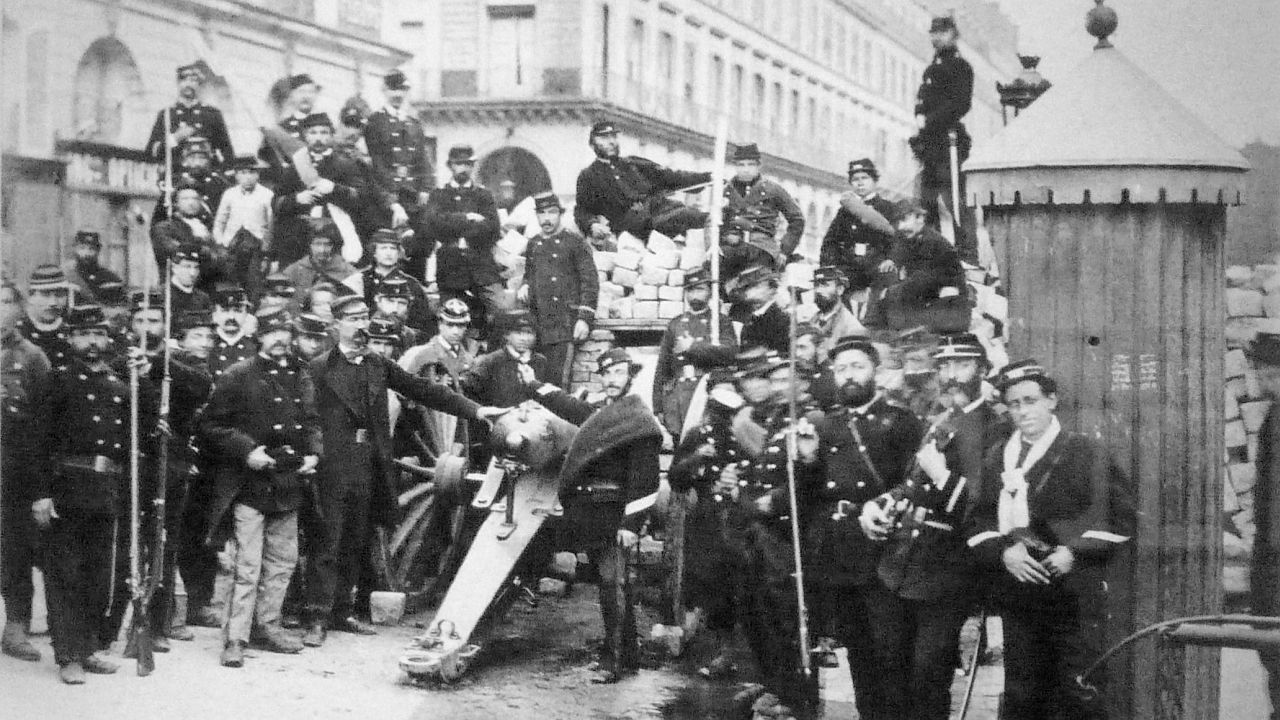On March 26, 1871, following France’s defeat in the Franco-Prussian war of 1870, Paris’s students and the working-class population joined together to form a revolutionary government historically known as the Paris Commune.
Paris had been under siege by the Prussian army since September 1870, but in January 1871, the moderate republican government under the 2nd emperor surrendered to Prussia. The fall of the empire angered the Parisians, who felt betrayed. Worried that the angered Parisians would revolt, President Adolphe Thiers sent troops to retrieve the cannons used during the war from the National Guard. However, on March 18, a rebellion broke out as the National Guard militia (composed mainly of workers who fought during the siege of Paris) joined to defend the city.
The National Guard took control of the city while the French government leaders fled for their safety. The central committee of the guard then organized municipal elections on March 26, and the commune was born. The elected commune was in direct opposition to the conservative national government. The commune council passed a raft of measures reflecting the aspirations of the capital’s working-class population. It also focused on radical social reforms like separating church and state, setting up food kitchens, and reducing the hours for child laborers.
However, the proposed commune’s resolutions could not be fully carried out as the commune rule only lasted for two months. The communards’ refusal to accept the French government’s authority forced the government to strike back. On May 21, government troops attacked the then weak commune, ending the historic rebellion.

